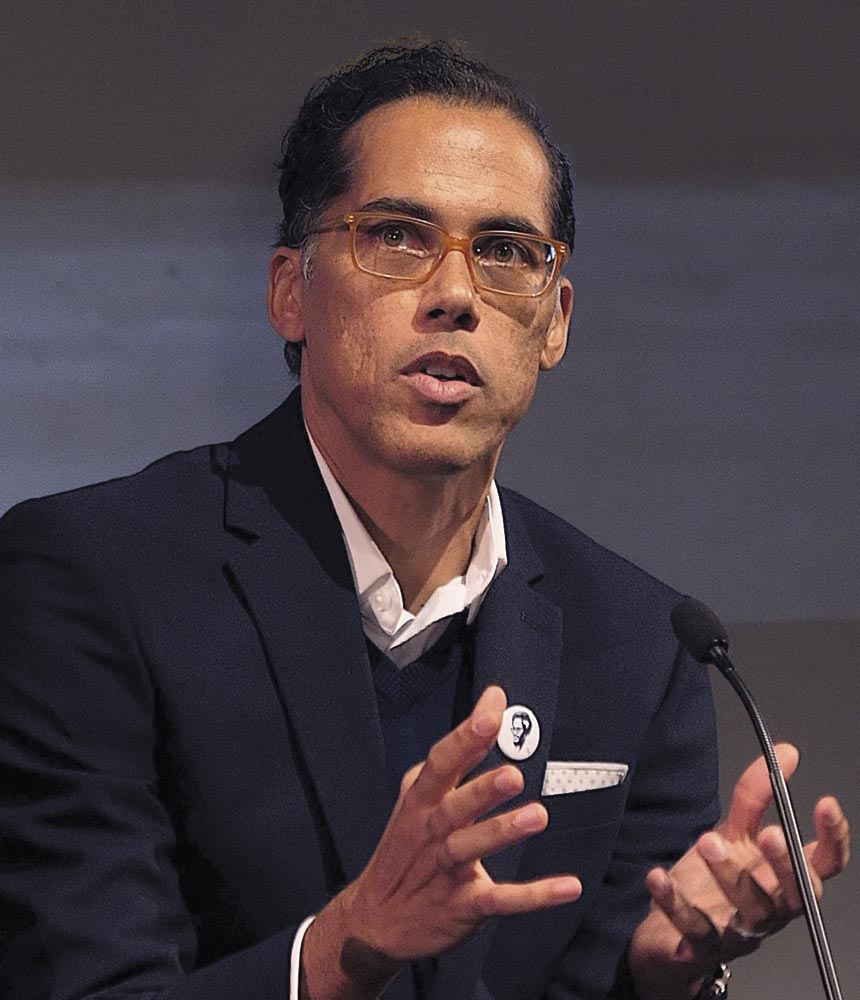“I wanted the film to capture a moment in time”
Almost four decades after his assassination in 1980, Walter Rodney remains one of the modern Caribbean’s most vital figures. Seeking to collapse the distinction between action and thought, Rodney was both a scholar who wrote such seminal books as How Europe Underdeveloped Africa (1972) and a radical activist intent on bringing socio-economic justice and multiracial democracy to his native Guyana and beyond.
An engaging new documentary, The Past Is Not Our Future: Walter Rodney’s Student Years — the phrase is from a Mervyn Morris poem — seeks to go beyond the mythic persona. Directed by Matthew Smith, professor of history at the Mona, Jamaica, campus of the University of the West Indies, it explores the time Rodney himself spent at Mona as an undergraduate reading history, in those heady early years of the 1960s. In this Q&A with Jonathan Ali, Smith explains the challenges of immersing viewers in the world of 1960s Jamaica.
You’re an academic, a published historian. Where did the idea to make a film come from?
I had never worked on a film as a filmmaker. The idea was sparked by a long-standing attachment to Walter Rodney’s life, which marked my early intellectual development. I believed the story could best be represented by a film.
What led you to focus on Walter Rodney’s three years as a student at Mona?
In the Caribbean, academics in the humanities — with good reason — lament student drift away from the arts towards the sciences. For me, having been educated in Jamaica, I am troubled by the separation younger people have from the stories of their predecessors. People like Walter Rodney, when they are considered, appear larger than life, as if they were iconic from birth. So I wanted to explore how Rodney began, his undergraduate years, when — like so many then and now — he came to learn about the world and his place in it.
The film also distinguishes itself in terms of the formal approach to its subject. How did you decide on this strategy?
I was clear going in that I wanted the film to capture a moment in time without the interruption of the present. I wanted audiences to be immersed in the world of the early 1960s Caribbean. For this reason, I eschewed talking heads completely. All the interviews that are used are gently introduced and are more retrospective recollections of young Rodney and the time he came of age by people who knew him then, and less interpretations that consciously searched out connections between his younger self and the celebrated revolutionary he would later become.
The style in which the present-day footage of Mona campus is shot is also striking.
Gareth Cobran, director of photography for the film, thought through with me how to present the campus in a different way than it’s ever been represented. I wanted the sense of emptiness, of the camera floating like a spirit, hovering through the corridors that Rodney walked, over the campus itself, and in the library. That approach is intended to give the setting a sense of timelessness and invite reflections on continuity within change.
How challenging was it sourcing the archival material?
It was difficult. But fortunately we have good records at the UWI Mona library, and with patient and skilful digging we were able to recover essays Rodney wrote over half a century ago that were largely forgotten. For the photographs we uncovered, they were sourced by going through every extant photograph of students we could find and looking for young Rodney in each. From this we found quite a few, which appear in the film.
Through all of your research, writing and filming, did you discover anything about Rodney that particularly struck you?
What was striking was how prolific he was during his undergraduate years. He wrote a great deal, expressing his thoughts on politics, society, history, and the Caribbean itself in numerous student papers and even in national newspapers. We recovered a lot of this in research, but also became aware of other writings that have probably been lost to time. That high level of engagement was extraordinary. I was always aware that Rodney was a highly driven person, but I didn’t fully appreciate how deep this was until working on the film.
The Past Is Not Our Future: Walter Rodney’s Student Years
Director: Matthew Smith
Jamaica, 2017
45 minutes


















